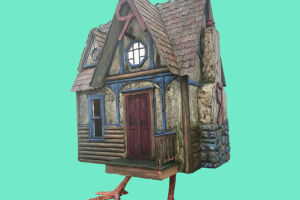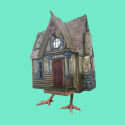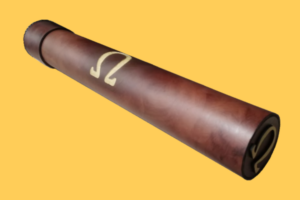Large Groups
Reserve our puzzle room and bring your friends’ or family’s sleuthing skills to the table for your own ultimate wordplay experience. Gather your group to search for clues, solve puzzles, and have a uniquely Planet Word adventure.
Like mysteries, riddles, and puzzles? Take a trip through Lexicon Lane, a charming village full of wordplay surprises on the museum’s third floor. Reserve a puzzle case and find clues that will help you solve fascinating mysteries among the town’s quirky shops and byways.
Great for solo sleuthing or team bonding, each case contains a set of themed word puzzles. Search the room for clues and crack each case one by one!
Please note that Lexicon Lane is limited to visitors ages 12 and older. Puzzlers under the age of 18 must be accompanied by an adult.
Reserve your puzzle case






Reserve our puzzle room and bring your friends’ or family’s sleuthing skills to the table for your own ultimate wordplay experience. Gather your group to search for clues, solve puzzles, and have a uniquely Planet Word adventure.
Each Lexicon Lane case experience is different. You will have 60 minutes to solve your case; you may solve it earlier and exit, if desired.
Lexicon Lane is limited to visitors ages 12 and older. Puzzlers under the age of 18 must be accompanied by an adult.
We recommend 4 visitors max per case. You can purchase additional cases upon arrival for groups 4-19 (if available).
Yes! Organized groups of 20-50 people may make reservations Wednesday–Monday. The price is $1000 for a private 2-hour Lexicon Lane experience. Group visits must be requested at least a month in advance. We cannot guarantee admission for groups without a reservation. Contact us if you have any questions.
Themed cases are selected in person and on a first-come, first-served basis
We have a limited number of cases available per session. Reserving your case online will ensure you get the day and time of your choice.
No. Visitors can experience Lexicon Lane without visiting the museum. We recommend reserving passes to the museum along with your Lexicon Lane experience and visiting the museum after Lexicon Lane. Limited walk-up passes for the museum may be available day-of.
Case passes are released on the first of the month for the following month. Due to our limited capacity, cases sell out fast! Limited walk-up passes will be available day-of.
We may be able to reschedule your case pass for another date or time that has not already sold out. Please contact us 48 hours before the date of your visit.
Late arrivals are not guaranteed entrance and will forfeit their passes. If a later session is available, you may be transferred to a later entry time. Reservation changes for late arrivals will incur a $5 fee per order. Unused case passes are non-refundable.
Case passes are non-refundable.
Contact us at [email protected].


